OMG y’all! I am flipping out because my #metoo work was chosen as a Grand Prize winner in PDNedu’s 2020 Student Photo Contest!!!!!!
I’m so excited, surprised, honored, and grateful for the positive news I’m tearing up. I had honestly forgotten I had entered this competition. When I checked my email and saw an email telling me I was a winner I thought the email was spam, but then I went to PDNedu’s site and saw that not only was I a winner but I was THE Grand Prize winner in the Fine Art & Personal Work category!!!
I am so proud and thankful for how well this work has been received. When I began graduate school it was my intention to focus my thesis project on my experiences with sexual assault. I ended up changing my mind but it was and still is a subject I’ll work with the rest of my life. It has been such a wonderful, affirming, and encouraging experience for this work to be so well received pretty much everywhere I can recall submitting or exhibiting it. It’s my hope that by sharing my story and work that I can help other survivors feel less alone and less afraid to share their own stories, while also promoting art as a form of healing. What a wonderful and welcome bit of news to hear during this difficult time.
View my work in PDN’s online gallery.
- Jacqueline Tobin | Editor-In-Chief, Rangefinder
- Michael Itkoff | Co-Founder, Daylight Book
- Elinor Carucci | Educator and Photographer
- Conor Risch | Senior Web Editor, Rangefinder, WPPI, PHOTOPLUS
- Amy Wolff | Photo Director, Hearst Enthusiast Group
Contest InfoGain Important and Critical Exposure for your Work! The PDNedu Student Photo Contest is open to students of undergraduate, graduate and certificate programs, and also includes a category for high school students. Winners and honorable mentions will be recognized in the Spring 2020 issue of PDNedu, which has a circulation of 50,000 copies to students and educators nationwide. Featured photographers will also be promoted to PDN‘s online audience of more than 500,000 followers.Grand-prize winners will also receive prizes that include Nikon gear, $150 to B&H Photo and Video and a portfolio consultation with either an editor at PDN or a contest judge.WINNERS and HONORABLE MENTIONS will be featured in the Spring 2020 issue of PDNedu and in an online gallery, promoted to PDNs network of more than 500,000 followers. Winners and honorable mentions will also have their work featured on the PDNedu‘s Instagram.About PDNeduPDNedu is published biannually by PDN and sponsored by Nikon. The magazine has been published since 2001, providing invaluable content for student photographers and educators alike.In addition to prizes of monetary value, our photo contests provide entrants with immeasurable exposure to leading creatives. Winners’ galleries are published in print and online, promoted to influential photo editors, creative directors and art buyers looking for new and established talent.Photo District News (PDN), the award-winning monthly magazine for the professional photographer, has been covering the professional photographic industry for over two decades.
Artist Statement
The #MeToo movement, which went viral in October 2017, prompted me to reexamine and reprocess my own personal history with sexual assault and harassment.
From 1996 to 1998, between the ages of 13 and 15, I was raped and manipulated by my stepfather, a man I had grown to love and trust like my own father. This series revisits family photographs from this time period, documenting my turbulent state of mind and expressing what I was unable to fully process in the moment. Through the addition and subtraction of various elements, the images reveal the extent of the trauma and begin to more accurately illustrate my life and psyche during this chaotic nightmare.< br/>
Working both digitally and physically allows me to create layers of separation and an emotional buffer between myself and the memories. Using the laptopogram process, family photos, legal documents and diary entries were scanned, digitally manipulated, and then exposed to silver gelatin paper via a laptop monitor in the darkroom. The resulting images were then developed and rescanned to create new images that could not have been made through digital means alone.This workflow allows me to both mentally and physically process my thoughts, exorcising the demons from my past by physically channeling long-held feelings of anger, grief and frustration into the development of the image. The solitude and focus during the practice allow me to reflect upon this turbulent period of my life now that I am no longer inside it.

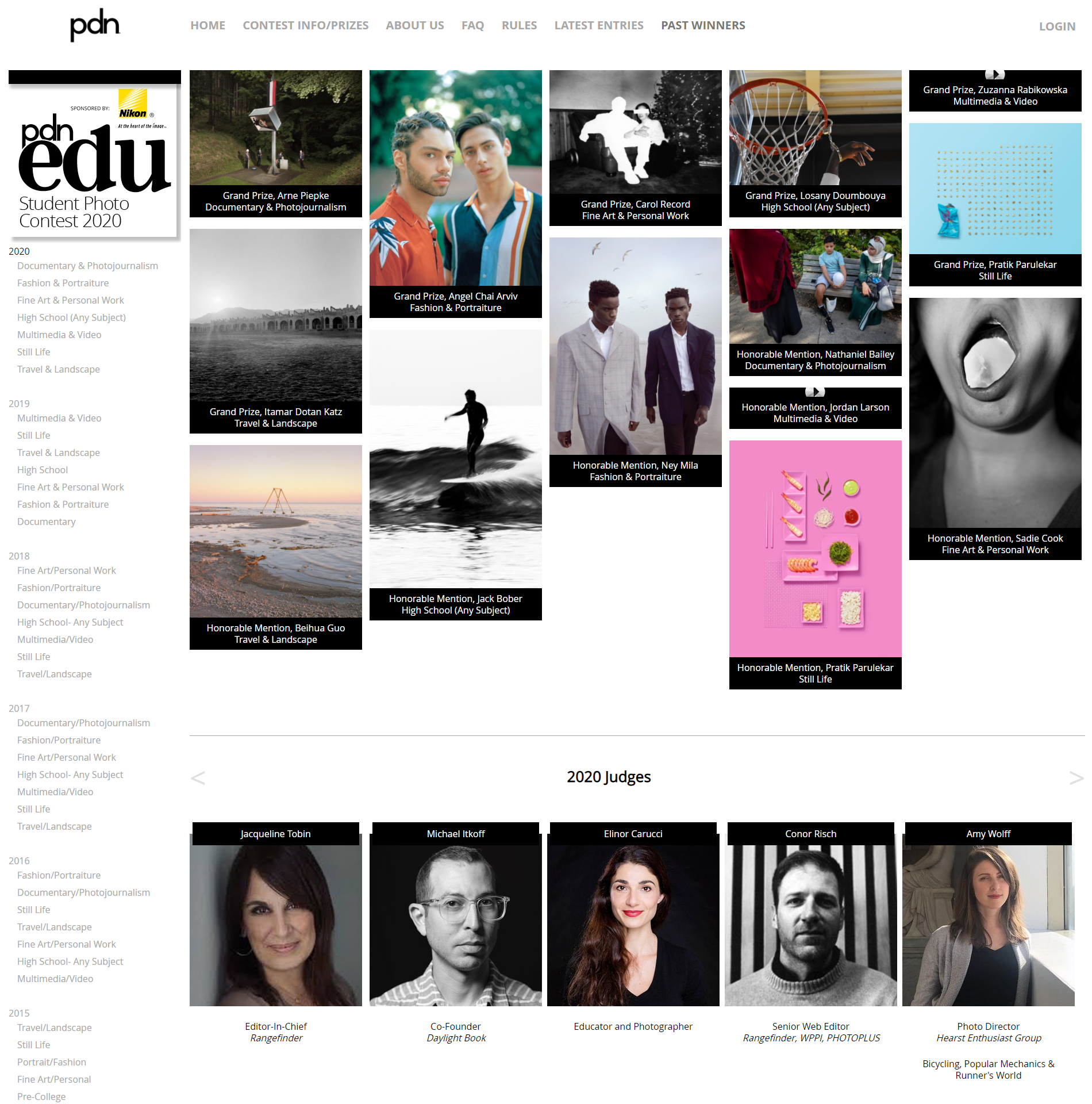





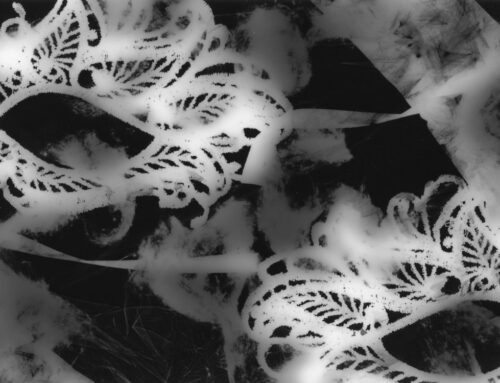
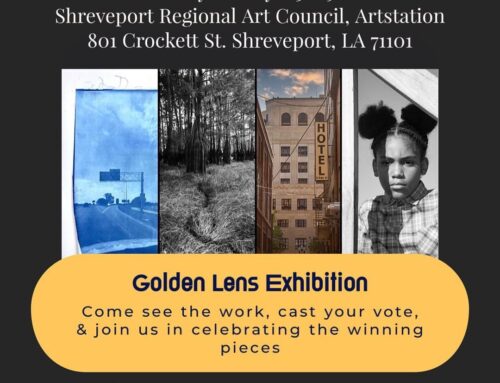
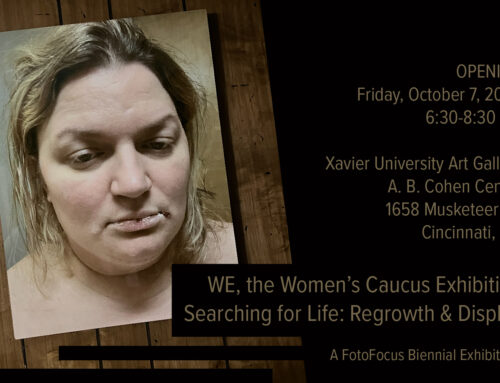
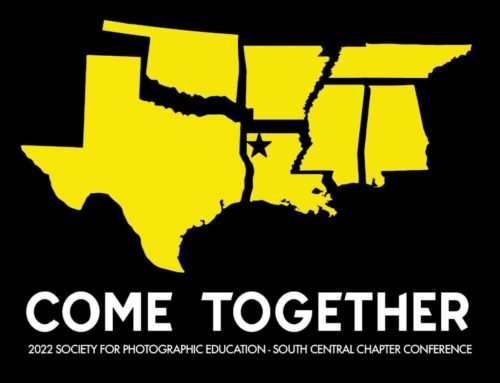
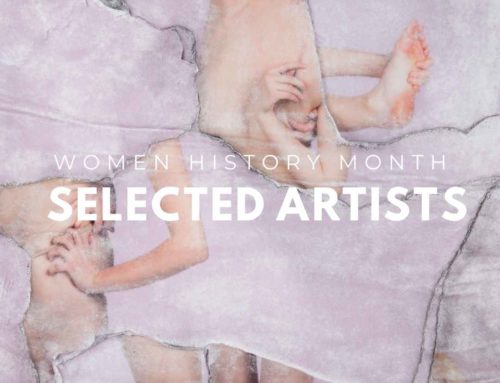
Leave A Comment